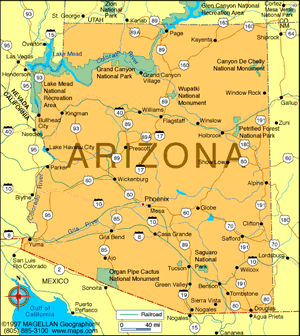What is Arizona AZ Senate Bill (SB) 1070 really: how did immigration laws and Latino values moved in to spotlight

Introduction
Recently, there is a huge national controversy about this new Arizona law, usually known as "SB 1070" (Arizona Senate Bill 1070), which modifies the immigration enforcements of Arizona law. People are protesting everywhere, even in San Francisco, California. Rev. Al Sharpton claims he will lead a group to Arizona and do a civil disobedience with various followers. So what exactly is so controversial about this bill?
To understand the bill, you must first read it (PDF link to old bill, see comments for link to the revised version). So please do that first. Don't trust any one who want to tell you about the bill, but have not read it.
Okay? Let us begin...
Section A: nothing controversial
Section A: NO OFFICIAL OR AGENCY OF THIS STATE OR A COUNTY, CITY, TOWN OR OTHER POLITICAL SUBDIVISION OF THIS STATE MAY ADOPT A POLICY THAT LIMITS OR RESTRICTS THE ENFORCEMENT OF FEDERAL IMMIGRATION LAWS TO LESS THAN THE FULL EXTENT PERMITTED BY FEDERAL LAW.
This basically says: nobody may choose to do LESS than what Federal immigration law requires.
Section B: Controversial? Maybe not.
SECTION B. FOR ANY LAWFUL CONTACT MADE BY A LAW ENFORCEMENT OFFICIAL OR AGENCY OF THIS STATE OR A COUNTY, CITY, TOWN OR OTHER POLITICAL SUBDIVISION OF THIS STATE WHERE REASONABLE SUSPICION EXISTS THAT THE PERSON IS AN ALIEN WHO IS UNLAWFULLY PRESENT IN THE UNITED STATES, A REASONABLE ATTEMPT SHALL BE MADE, WHEN PRACTICABLE, TO DETERMINE THE IMMIGRATION STATUS OF THE PERSON. THE PERSON'S IMMIGRATION STATUS SHALL BE VERIFIED WITH THE FEDERAL GOVERNMENT PURSUANT TO 8 UNITED STATES CODE SECTION 1373(c).
NOTE: April 30, 2010 revision changed this section slightly.The subscript words were REMOVED, and BOLD words added.
For any lawful contact stop, detention or arrest made by a law enforcement official or a law enforcement agency of this state or a law enforcement official or a law enforcement agency of a county, city, town or other political subdivision of this state in the enforcement of any other law or ordinance of a county, city or town or this state where reasonable suspicion exists that the person is an alien whoand is unlawfully present in the United States, a reasonable attempt shall be made, when practicable, to determine the immigration status of the person, except if the determination may hinder or obstruct an investigation. Any person who is arrested shall have the person's immigration status determined before the person is released. The person's immigration status shall be verified with the federal government pursuant to 8 United States code section 1373(c). A law enforcement official or agency of this state or a county, city, town or other political subdivision of this state may not solely consider race, color or national origin in implementing the requirements of this subsection except to the extent permitted by the United States or Arizona Constitution.
What this actually says: if any law enforcement official, have "reasonable suspicion" to believe that a suspect may be an illegal alien, the official will try to verify that person's immigration status with "reasonable attempt".
So what is "reasonable suspicion"? Quoted from Wikipedia:
Reasonable suspicion is a legal standard in United States law that a person has been, is, or is about to be engaged in criminal activity based on specific and articulable facts and inferences. It is the basis for an investigatory or Terry stop by the police and requires less evidence than probable cause, the legal requirement for arrests and warrants. Reasonable suspicion is evaluated using the "reasonable person" or "reasonable officer" standard, in which said person in the same circumstances could reasonably believe a person has been, is, or is about to be engaged in criminal activity; such suspicion is not a mere hunch.
In other words, the officer must have REASON, based on specific and articulable facts and inferences, to conclude that the suspect may be an illegal alien, and must be able to document the reason, in order to make "lawful contact", i.e. stop the suspect for questioning. Else, the stop would be ruled illegal, the contact illegal, and any sort of data gathered, also illegal, and not admissible in court.
Thus, any sort of fear that cops can just randomly round up Latino-looking people in the streets and run ID's on all of them, is simply unfounded. Any decent lawyer would be able to convince a judge to throw out the entire case if that happens.
The modifications made even LESS likely the law can be abused, by removing "lawful contact", and substituting "lawful stop, detention or arrest".
Section C & D: nothing controversial
SECTION C. IF AN ALIEN WHO IS UNLAWFULLY PRESENT IN THE UNITED STATES IS CONVICTED OF A VIOLATION OF STATE OR LOCAL LAW, ON DISCHARGE FROM IMPRISONMENT OR ASSESSMENT OF ANY FINE THAT IS IMPOSED, THE ALIEN SHALL BE TRANSFERRED IMMEDIATELY TO THE CUSTODY OF THE UNITED STATES IMMIGRATION AND CUSTOMS ENFORCEMENT OR THE UNITED STATES CUSTOMS AND BORDER PROTECTION.
SECTION D. NOTWITHSTANDING ANY OTHER LAW, A LAW ENFORCEMENT AGENCY MAY SECURELY TRANSPORT AN ALIEN WHO IS UNLAWFULLY PRESENT IN THE UNITED STATES AND WHO IS IN THE AGENCY'S CUSTODY TO A FEDERAL FACILITY IN THIS STATE OR TO ANY OTHER POINT OF TRANSFER INTO FEDERAL CUSTODY THAT IS OUTSIDE THE JURISDICTION OF THE LAW ENFORCEMENT AGENCY.
Translation: illegal aliens, upon serving their sentence, are remanded to Federal custody (probably to be deported), even if the cops have to go outside their own jurisdiction.
Section E: Controversial? Hmmm...
SECTION E. A LAW ENFORCEMENT OFFICER, WITHOUT A WARRANT, MAY ARREST A PERSON IF THE OFFICER HAS PROBABLE CAUSE TO BELIEVE THAT THE PERSON HAS COMMITTED ANY PUBLIC OFFENSE THAT MAKES THE PERSON REMOVABLE FROM THE UNITED STATES.
This sounds controversial, until you read closer: "has committed public offense that makes the offender removable from the US".
So what is "public offense"? A public offense is basically a fine-only infraction. How many of those would make the person removable from United States? Not that many, actually.
Thus, it is nowhere as controversial as it sounds.
The rest are not controversial, really
SECTION F: Requires full immigration status data sharing among state agencies regarding benefits, licensing, residency, and so on.
SECTION G: Regular citizens can sue agencies and local governments that do NOT fully enforce Federal immigration laws. Should the agency/government loses, they have to pay attorney fees (normal), and pay a penalty.
SECTION H: The Penalty in Section G goes into a special state fund for immigration enforcement.
SECTION I: The officers, if acting within bounds of duty, are covered by the agency in question if they were involved in the lawsuit as per section G, unless they acted in "bad faith".
SECTION J: No civil rights of (legal) US residents may be violated to enforce these laws.
And a few other provisions...
Sec. 3. Title 13, chapter 15, Arizona Revised Statutes got the following additions:
A: Adds "trespassing" to the list of offenses that an illegal alien would face
B: Only a Federal officer who has access to immigration data, or an officer in contact of Federal agency who has access to immigration data, can determine who's "legal resident" or not.
C: Any illegal aliens are NOT eligible for early release or reduction of sentence; must serve all of it
D: Illegal aliens caught must also pay jail costs AND $500 (or more) penalty
E: The penalty goes into the special fund (mentioned earlier) for enforcement
F: Does NOT apply to legal immigrants
G: Defines penalties for stuff above
Another section toughens penalty for human smuggling (i.e. smuggle people across the border, usually in vehicles)
Another section clarifies the law that makes it ILLEGAL to hire or even pick up illegal day laborers.
Another section clarifies the law that makes it illegal to conceal an illegal alien to avoid arrest, and allows impound of vehicle
Another section clarifies the law that makes it illegal to hire illegal aliens, and defines penalties, appeal process, and so on.
The REAL PROBLEM with this law
This Arizona law has problems, but not for the reasons you may believe.
While the law is often seen as "anti-Latino", most of the provisions simply strengthen existing laws prohibiting businesses from hiring illegal immigrants to work. The only thing really controversial is the expansion of "reasonable suspicion" to include immigration status. However, most of the provisions *do* seem specifically targeted at the way Latino illegal day laborers try to find work or get into Arizona. Is it racial profiling? I honestly don't know.
So what is "racial profiling", which seem to be most of the objections?
Racial Profiling, as defined by wikipedia, is "the inclusion of racial or ethnic characteristics in determining whether a person is considered likely to commit a particular type of crime or an illegal act or to behave in a "predictable" manner."
For example, rousing all the Latinos in the area for lineup so a victim can point out the offender. THAT is racial profiling. Or stopping a large van carrying a lot of Latinos on an AZ freeway just because it *is* carrying a lot of Latinos. THAT is also racial profiling. But does the new Arizona law allow that? No! It specifically targets ILLEGAL BEHAVIOR (hiring illegal workers, etc.) The only thing approaching controversy is the specific provision that allows LEOs, upon establishing 'reasonable suspicion', to contact, stop, and question suspicious individuals to establish their immigration status.
Folks, profiling is a real way to catch criminals. For the longest time, NBC had a TV series called "The Profiler". Even now, the TV series Criminal Minds is based on the FBI Behavior Science Unit, and they do PROFILING! It is when profiling is ABUSED, especially when it involved RACE (or ethnicity) characteristics, that it becomes bad. That does NOT mean the entire "offender profiling" is necessarily bad, or that racial profiling is bad by default! It is just that it can be abused, that made it controversial!
Furthermore, this is a "chicken and the egg: which is first" type question. Is the law really targeting Latinos who usually exhibit criminal behavior, or targeting criminal behavior exhibited usually by Latinos? Apparently one is legal, and the other is racial profiling, but how *do* you tell the two apart? Or do you just throw up your hands and call both "racial profiling"?
The REAL problem is the 'slippery slope' argument. Once this starts, what is next? And how do you prevent abuse?
What is really needed with this law is an automatic expiration date, upon which a NEW vote is required.
I am a minority, and I speak fluent Spanish (but I am NOT Latino). Many of my friends are Latinos, so I am ambivalent on this issue. However, I urge people to actually READ the actual laws on this issue, instead of rely on sound bytes given by news reporters and commentators.
(revised 28-APR-2010 3PM)
Also read my other hub: what is racial profiling, and how it is related to SB1070, and why court challenges to SB1070 are doomed.
Other SB1070 Analysis
- Immigration Dilemma: should ALL native-born be citizens automatically?
Immigration reform idea: a new class of immigrant? Should there be "provisional residency"? Should native-born children of illegal immigrants be made permanent resident first, citizen later? - Racial Profiling and the Arizona SB 1070 Law
Racial profiling: the new Arizona immigration law is accused of doing it. What is racial profiling, are there different types, how it is related to the AZ law, and how can it affect you? - Why Court Challenges to Arizona SB1070 will fail
Do you know why court challenges to Arizona's SB1070 are doomed? That's right, ACLU and others will lose. The AZ laws have been carefully written to defeat challenges. Find out why.








